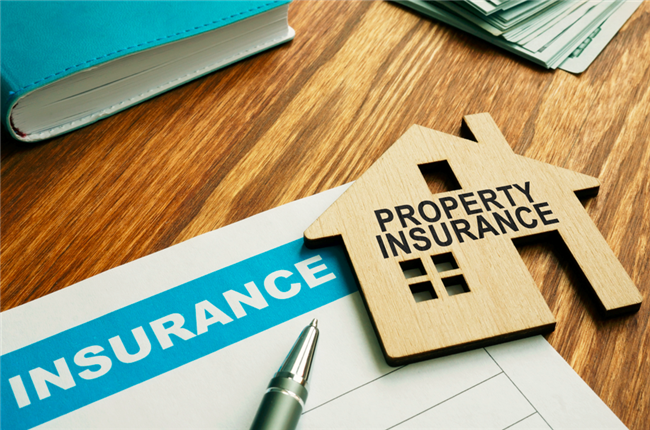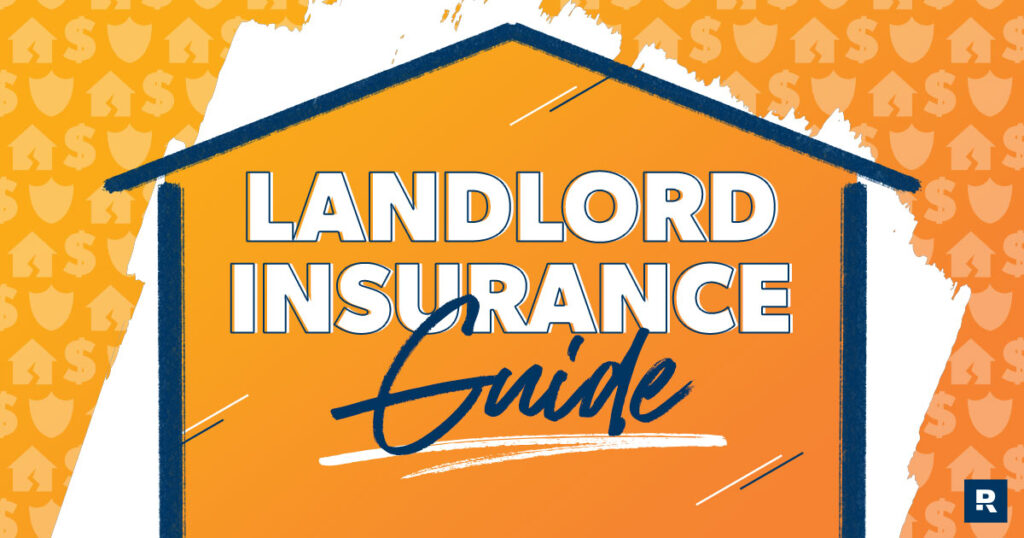Owning rental property can be a wise investment, but it also comes with risks. From unexpected damage to legal liabilities, being a landlord means you need to be prepared for the unexpected. That’s where property insurance for landlords comes in. This specialized coverage, often called landlord insurance, is designed to protect rental property owners from financial losses due to damages, tenant disputes, loss of rental income, and liability claims.
Unlike standard homeowners insurance, landlord insurance covers risks specific to rental properties, such as tenant-caused damage, legal expenses, and lost rent due to covered events like fires or storms. Whether you own a single-family home, a duplex, or an apartment building, having the right insurance ensures you’re not paying out of pocket for accidents or repairs. If you’re renting out property—even just one unit—you need protection that fits your role as a landlord.
What is Property Insurance for Landlords?
Property insurance for landlords, also known as landlord insurance or lease their residential or commercial spaces to tenants. Unlike standard homeowners insurance, which covers an owner-occupied home, landlord insurance is tailored for income-generating properties.

This type of policy provides coverage for:
- Physical damage to the structure
- Loss of rental income
- Legal liabilities related to the rental activity
Key Coverages Included in Landlord Insurance
A typical landlord insurance policy includes several core components:
- Dwelling Coverage: Protects the physical structure of the rental property (walls, roof, floors, plumbing, built-in appliances) from damages caused by perils like fire, storms, or vandalism.
- Liability Protection: This coverage covers legal and medical costs if a tenant or guest is injured on your property due to negligence, such as a broken stair or icy walkway.
- Loss of Rental Income: If your property becomes uninhabitable due to a covered event (like fire), this coverage compensates you for lost rental income during the repair period.
- Optional Add-ons: You can customize your policy with additional coverages, such as flood insurance, earthquake protection, tenant vandalism, or equipment breakdown coverage.
Why Homeowners Insurance Isn’t Enough for Landlords
Many first-time landlords assume their homeowner’s policy will suffice when renting out a property—but this is a costly misunderstanding. Homeowners insurance is intended for owner-occupied homes, and it typically excludes coverage when the house is being rented out for an extended period.
If you rent out your home and file a claim under a standard homeowners policy, your claim could be denied. To avoid this, you must switch to or supplement your policy with landlord insurance, which is structured for the risks involved with tenants, rental income, and property management responsibilities.
How Much Does Landlord Insurance Cost?
The cost of landlord insurance depends on several factors, including:
- Location of the property
- Type and size of the property
- Construction materials and age of the building
- Security features and safety upgrades
- Coverage limits and deductible choices
- Claim history
On average, landlord insurance costs 15% to 25% more than a standard homeowners policy. This means you can expect to pay around $1,200 to $2,000 annually for a typical rental property, though prices can vary significantly.
To get the best rate:
- Compare quotes from multiple providers
- Bundle with other policies
- Ask about discounts for installing security systems, fire alarms or making weather-resistant upgrades
Important Optional Coverages to Consider

- Flood and Earthquake Insurance: Standard landlord policies don’t are especially important in high-risk areas.
- Vandalism and Theft Coverage: While many policies include some protection, you might need to extend limits to fully protect against intentional tenant damage or break-ins.
- Guaranteed Income Insurance: Covers lost rent if a tenant refuses to pay or breaks the lease (often available through specialty insurers).
- Legal Assistance or Umbrella Policy: Adds a layer of liability protection beyond the standard policy limits—instrumental if you own multiple rental units.
- Appliance and Equipment Breakdown: Covers repairs or replacement of landlord-owned appliances and systems like HVAC or water heaters.
What Landlord Insurance Doesn’t Cover
While landlord insurance is comprehensive, it’s essential to know what it doesn’t include:
- Tenant’s Belongings: The renter’s items are not covered. Tenants should purchase renters insurance for their belongings.
- Wear and Tear: Gradual damage from aging or poor maintenance (like mold, rust, or roof leaks) is not covered.
- Vacant Property Issues: If a property remains vacant too long, some coverages may lapse. You may need a vacant property policy if it’s unrented for 30–60 days.
- Acts of War or Government Action: These are usually excluded across most property insurance policies.
Tips for Landlords to Minimize Risk and Save Money
Owning rental property comes with risk—but smart landlords know how to reduce exposure and keep premiums in check:
- Screen Tenants Thoroughly: Responsible tenants are less likely to cause damage or file liability claims.
- Maintain the Property: Regular maintenance reduces claims and helps prevent damage.
- Install Safety Features: Smoke detectors, fire extinguishers, deadbolt locks, and cameras not only increase safety but can qualify you for insurance discounts.
- Use a Property Manager: A professional manager can help ensure rules are followed and maintenance is handled promptly.
- Bundle Policies: If you own multiple properties or already have auto or umbrella insurance, bundling can lead to significant savings.
How to Get the Right Policy for Your Rental Property
Here’s a step-by-step guide to getting the right insurance as a landlord:

- Inventory the Property: Know what you’re covering—structure, systems, and landlord-owned appliances.
- Determine Coverage Needs: Consider potential risks and choose appropriate coverage limits.
- Shop Around: Get quotes from multiple insurers to compare coverage and prices.
- Ask the Right Questions: Inquire about deductibles, exclusions, claims process, and available discounts.
- Customize with Add-ons: Add riders for specific risks like floods, vandalism, or rent loss.
- Review Annually: Your needs may change over time—update your policy accordingly.
Frequently Asked Questions
What is landlord property insurance?
It’s a policy that protects rental property owners from financial loss due to damage, liability, or lost income.
How is landlord insurance different from homeowners insurance?
Homeowner insurance covers owner-occupied homes, while landlord insurance is for rental properties and covers tenant-related risks.
What does landlord insurance typically cover?
Property damage, liability protection, and loss of rental income due to covered events like fire or storms.
Does the law require landlord insurance?
No, but it’s highly recommended—and often required by lenders if you have a mortgage.
Does it cover tenant belongings?
No, tenants need their own renters insurance to cover their possessions.
Can I get coverage for multiple properties?
Yes. Many insurers offer multi-property policies or discounts for landlords with multiple units.
Does landlord insurance cover maintenance issues?
No, routine maintenance and wear and tear are not covered.
What about vandalism or tenant-caused damage?
Yes, many policies include vandalism and accidental tenant damage, but check your specific coverage.
How much does landlord insurance cost?
It typically costs 15–25% more than homeowners insurance, depending on location, property size, and coverage.
Can I add optional coverages?
Absolutely. Options include flood insurance, legal expense coverage, and guaranteed income protection.
Conclusion
Property insurance for landlords is a key safeguard that protects your investment from costly risks. From natural disasters to tenant issues, the right policy provides coverage and peace of mind so you can focus on managing your property and not worry about what could go wrong. Be sure to evaluate your needs, compare quotes, and customize coverage to match your rental business. A little preparation today can save you a lot tomorrow.




